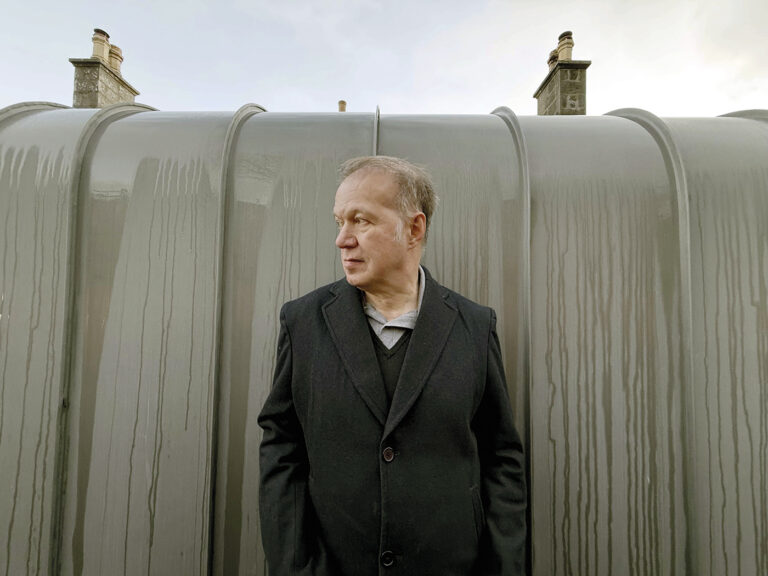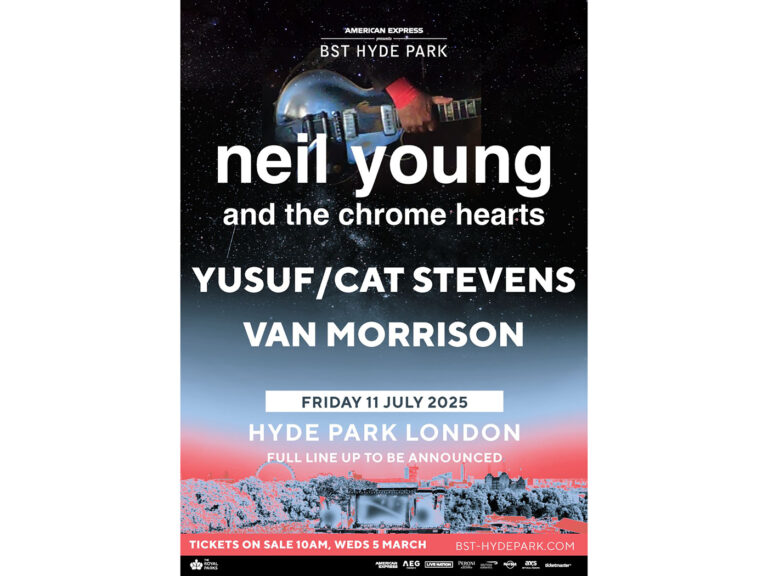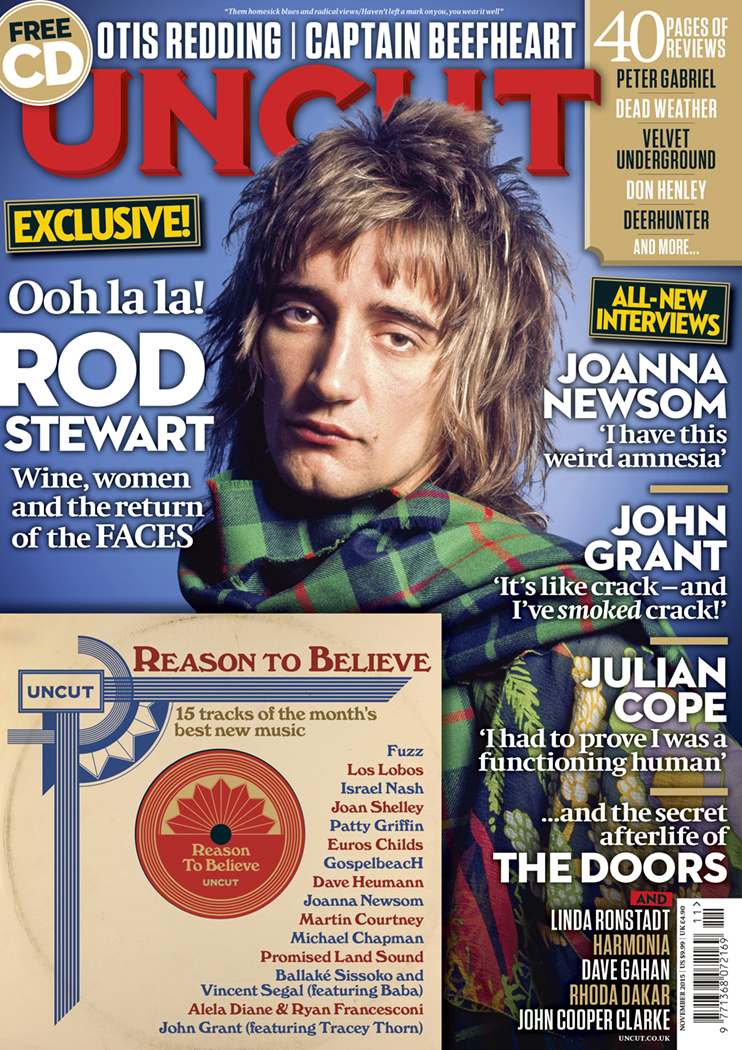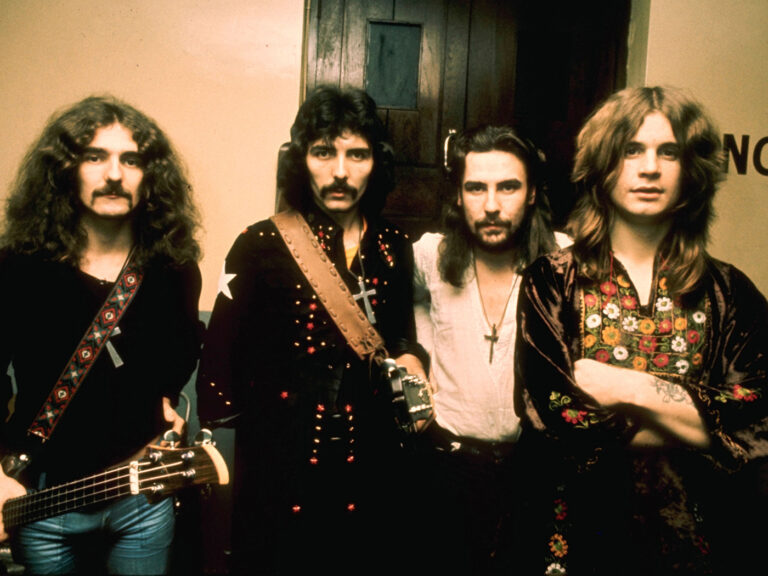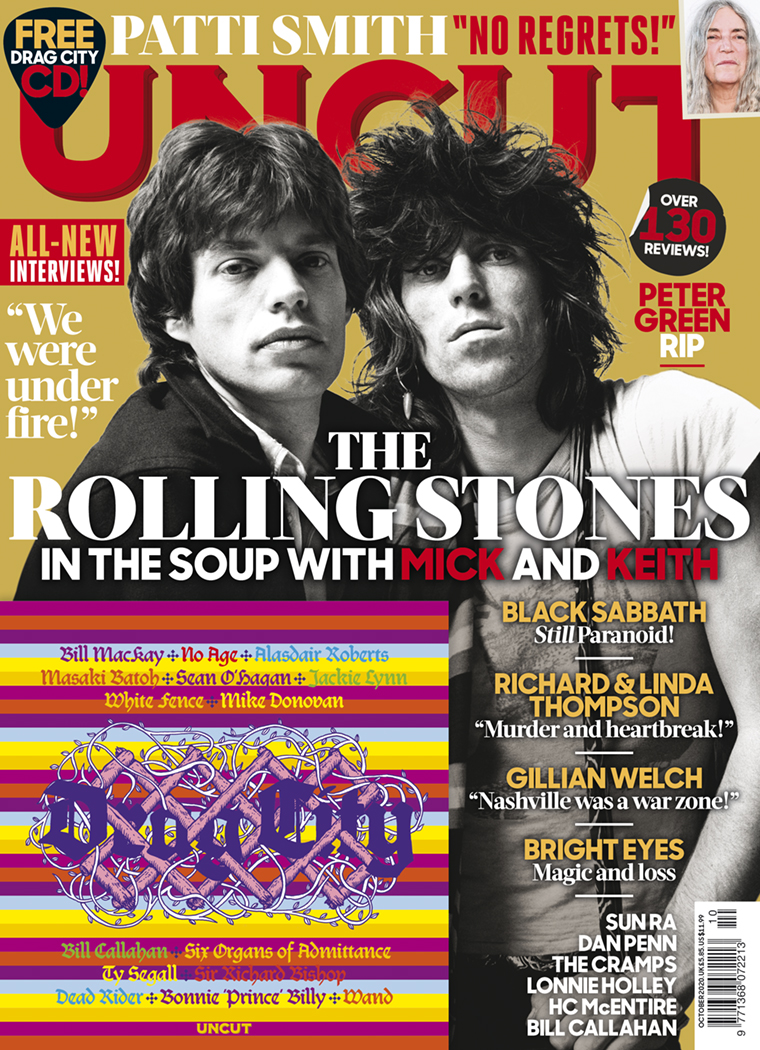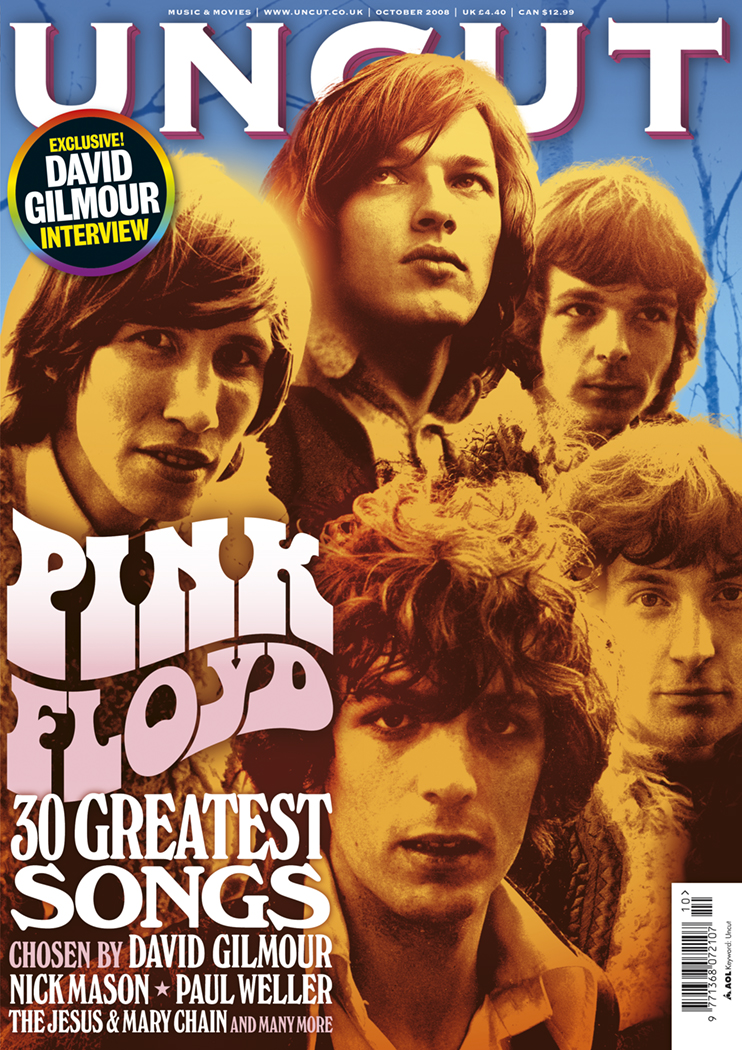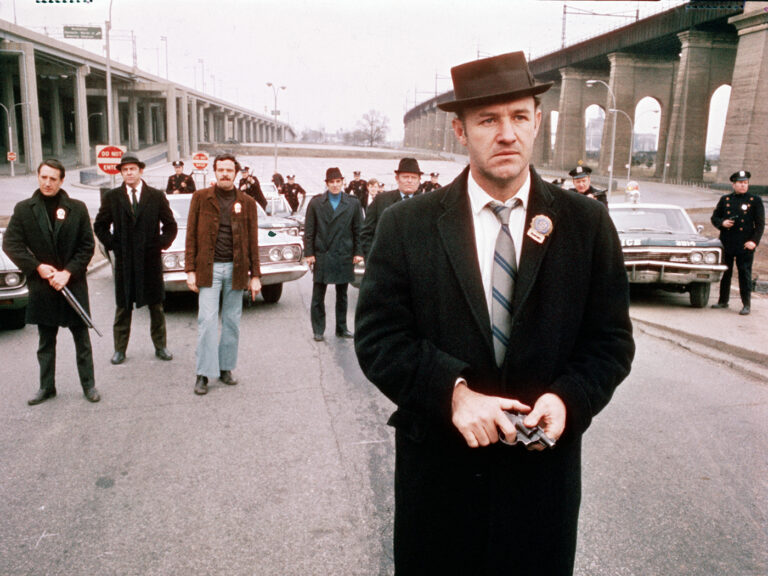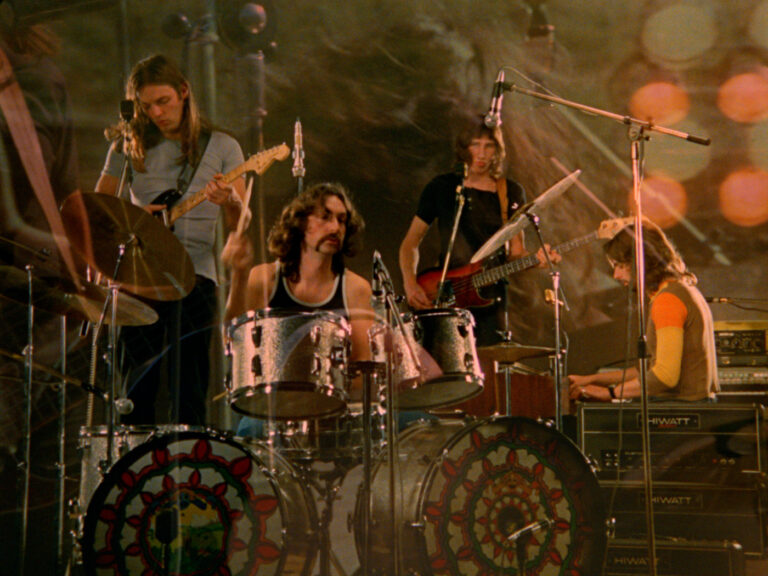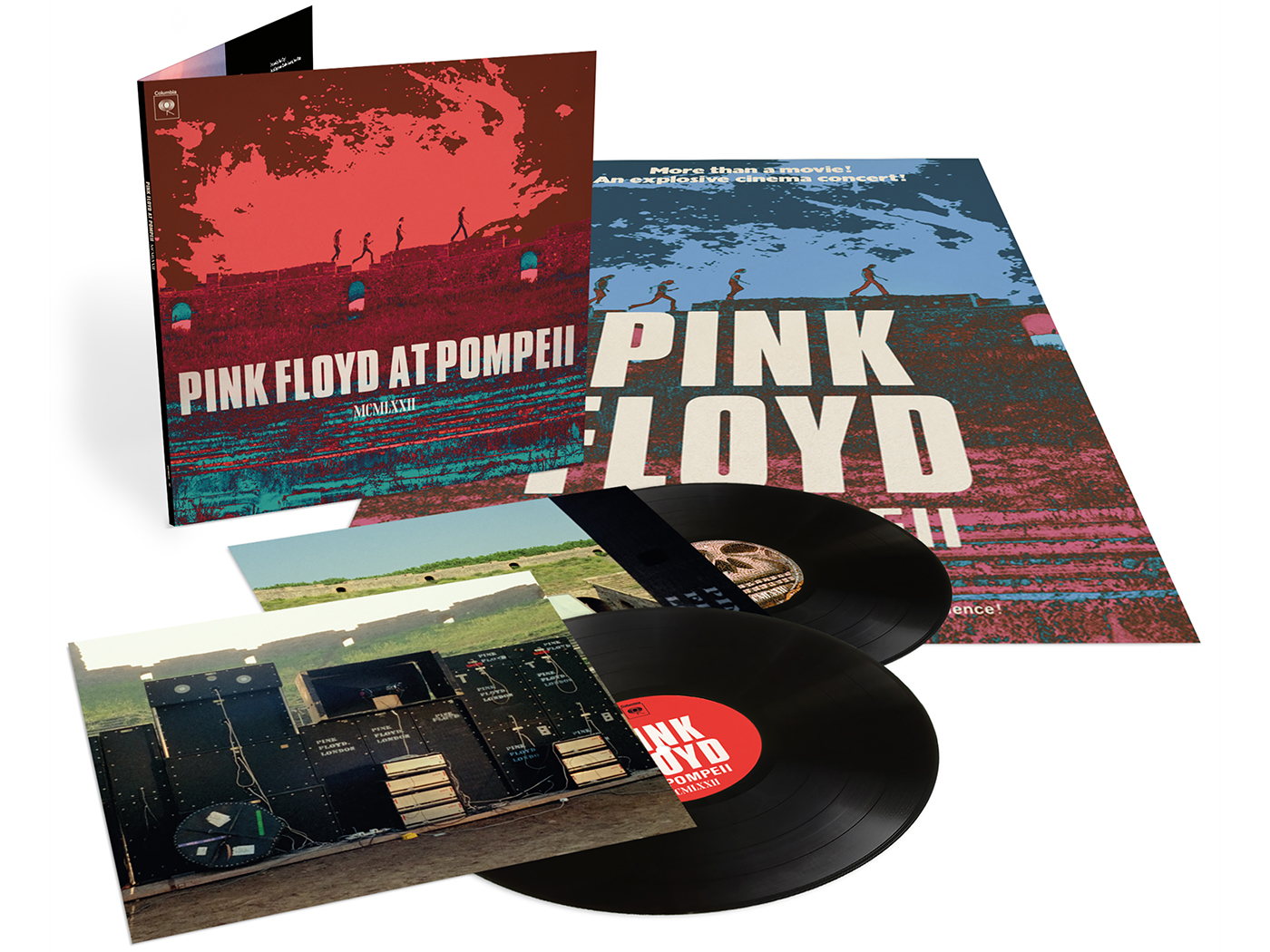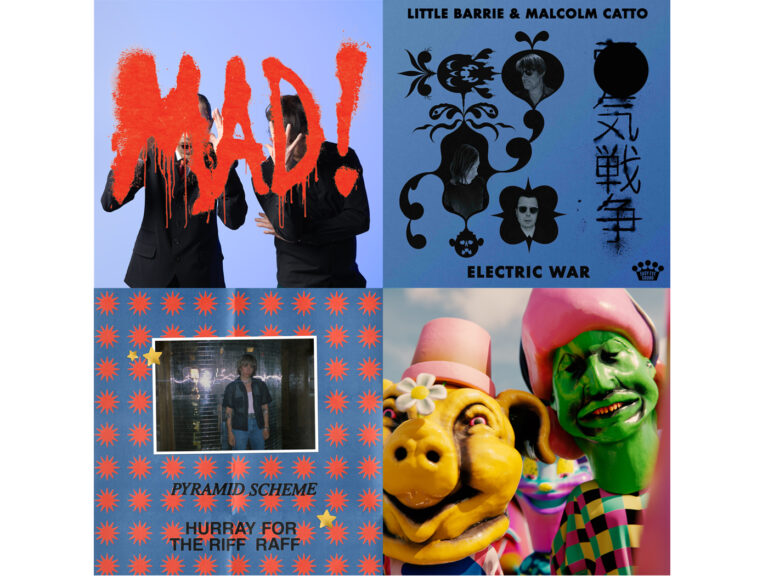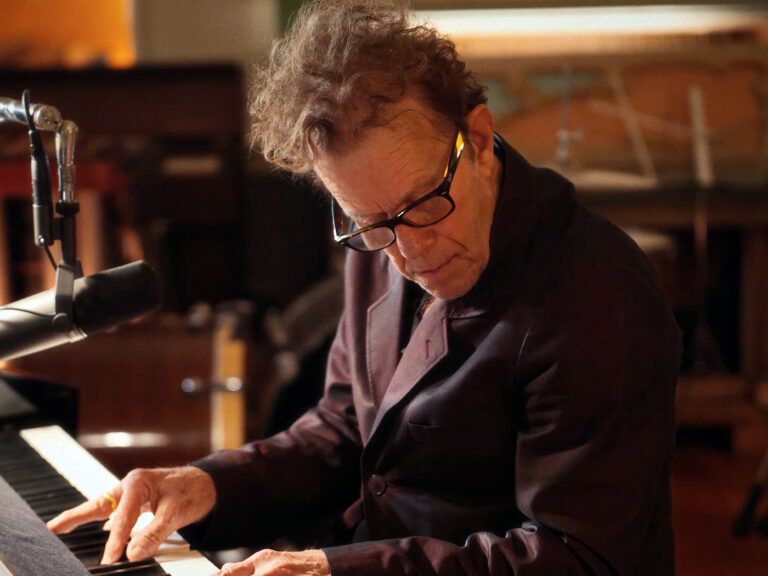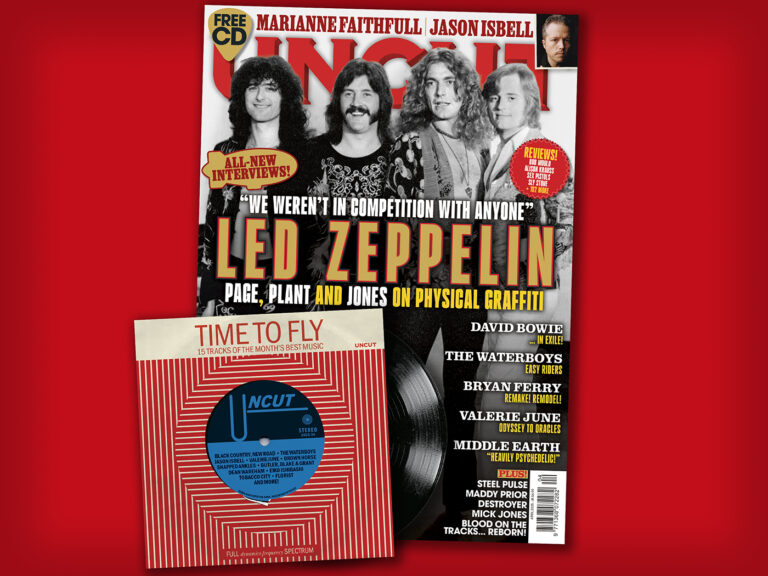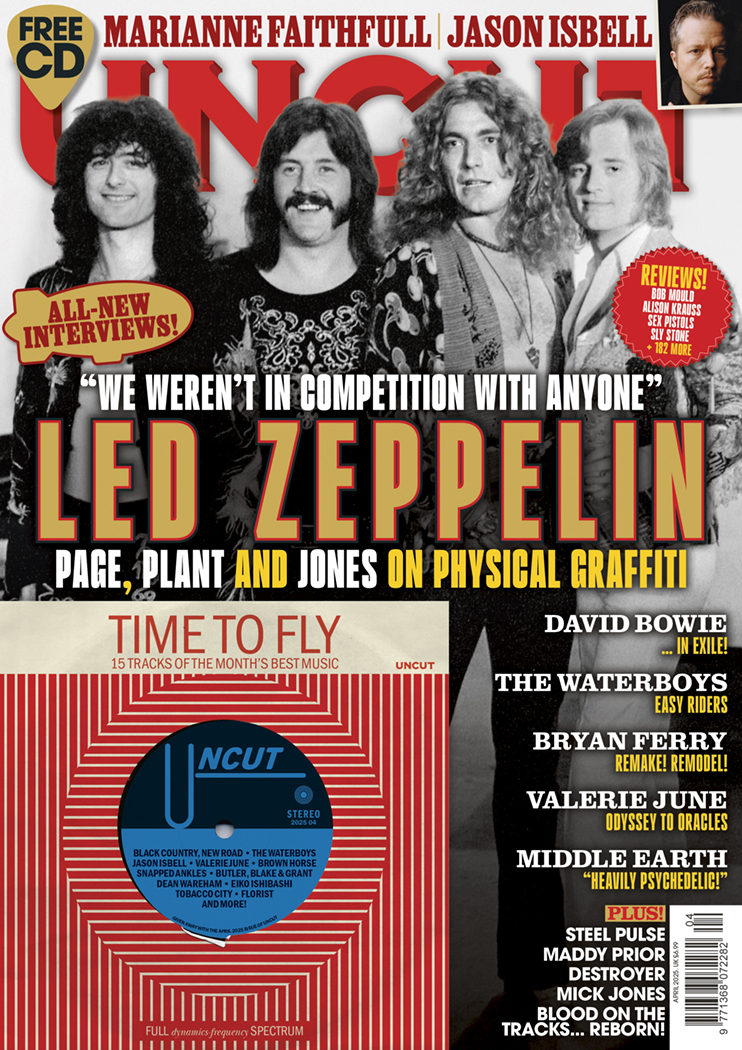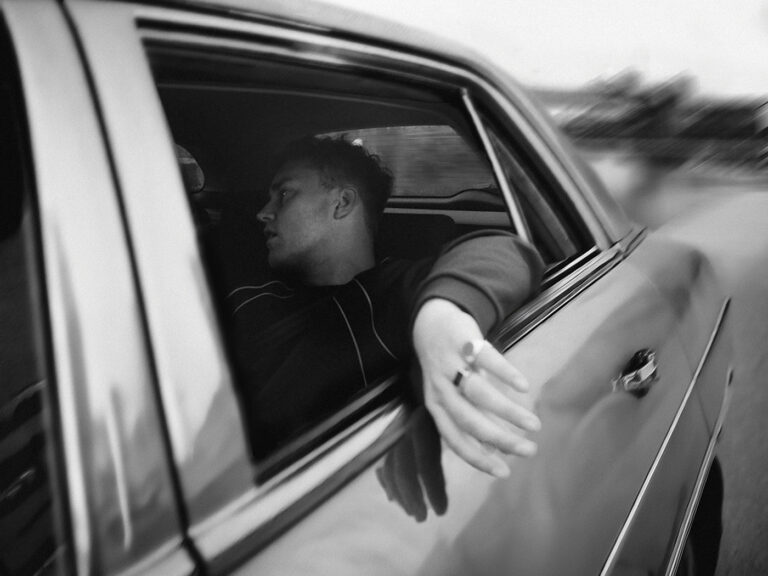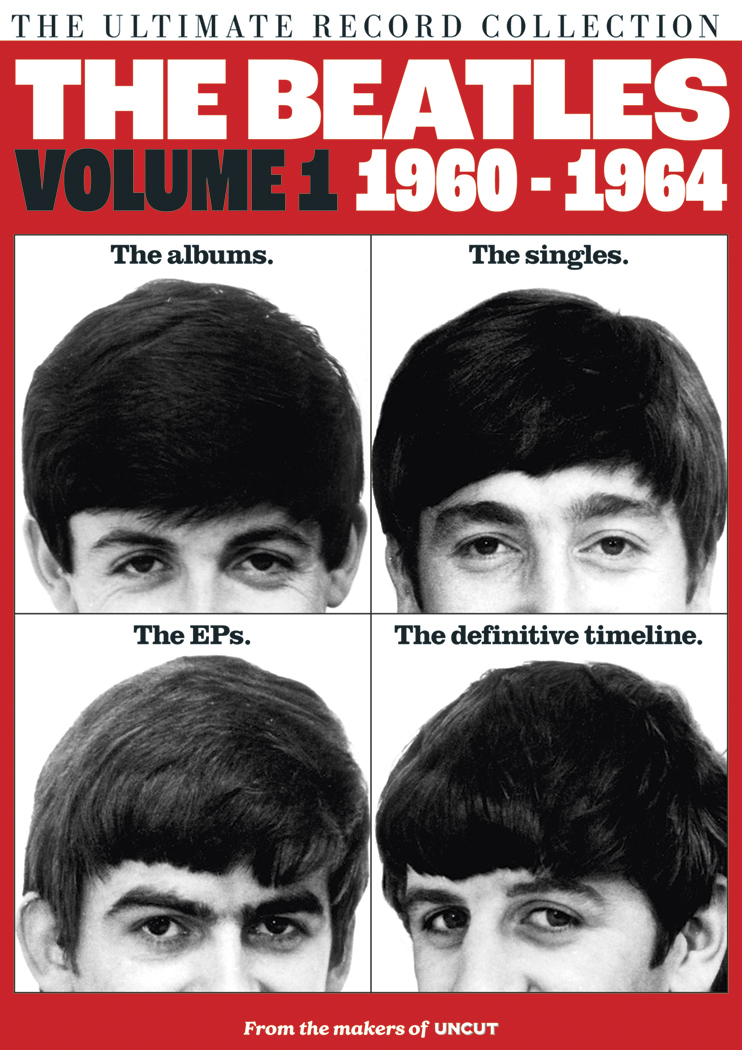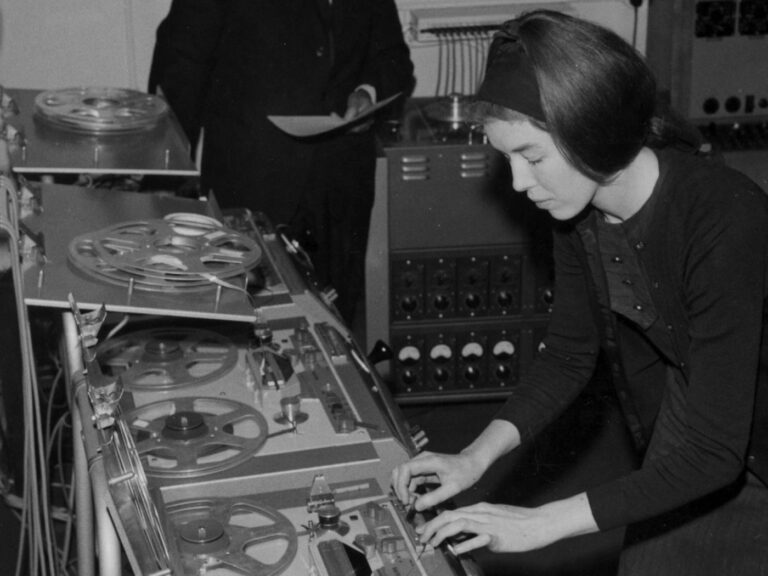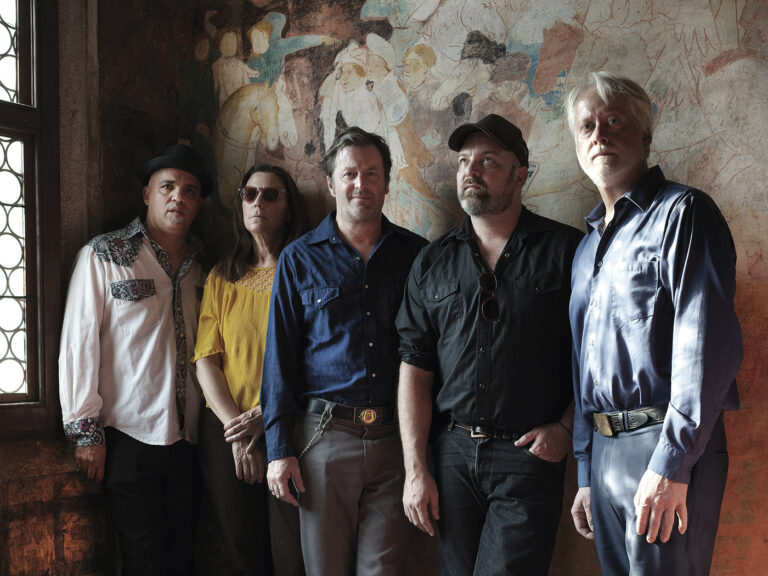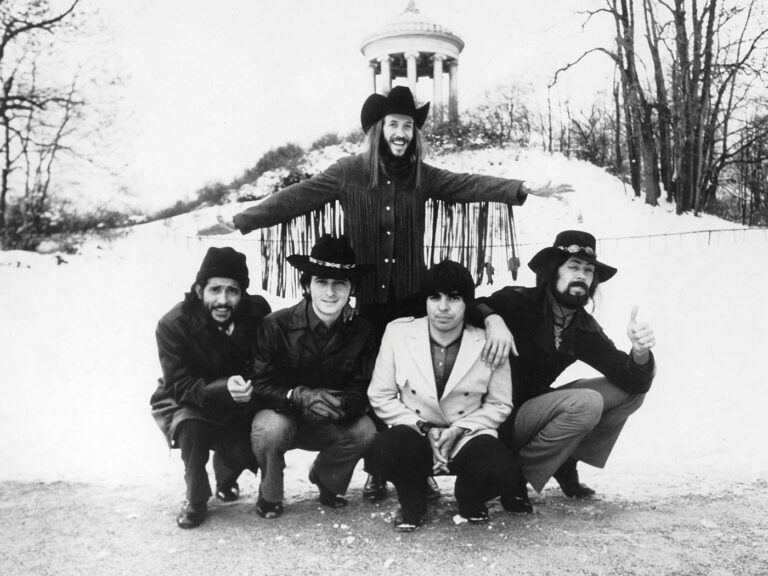In the video for “Knowledge”, the first single from Edwyn Collins’ 10th solo album, the clan chief of Postcard Records stands like a monument in the wintery landscape around his home in Helmsdale, on the north-east coast of Scotland. It is a grey day. There is snow on the ground. The joyous gospel harmonies can’t disguise the note of disquiet that leaks from the song. “Knowledge” is about unease, the loss and recovery of fond memories. Knowledge, Collins sings, with a nod to Amazing Grace, “first was lost and now it’s found”. The chorus underlines the point, while the video cuts through subliminal flashes of the singer’s musical trophies, rolling into a series of fast cuts of Collins in his popstar pomp, all arch sideburns and long spear collars. He pouts like Elvis, he machine-guns the audience like Eddie Cochran. “Hard to let my old self go,” Collins sings, repeating the point for emphasis. “So hard…”
It’s a strange thing, listening to “Knowledge”. It sounds so familiar, as if the melody has been around forever. It is, as Donny and Marie once sang, a little bit country, a little bit rock’n’roll. There is a bit of Memphis, some Nashville and – departing from the Osmonds’ formula – in place of Motown, a little bit of Northern Soul. The mood seems to echo the melody of “Rehab”, a song by Collins’ former comrade in Orange Juice, James Kirk. The more you listen, the more that similarity dissolves. Something else, an old country tune, crackles through the static, then that, too, fizzles in the haar.
“All my life, I draw from music I love,” Collins tells Uncut. “There’s so much to dig into. I used to call it cross-pollinating. I’m influenced and then I influence. On this record it’s the same as always, loads of things inspire me. Soul music, gospel music, country music, synthy pop music, guitar players, everything.”
Before we go forward, it’s worth going back. Such is the myth surrounding Collins’ first band, Orange Juice, that the music tends to get lost. In the traditional shorthand, the Creamola Foam rush of Orange Juice came from a chemical blend of The Velvet Underground and Chic, a formula which gives an entirely misleading sense of what they actually sounded like. Postcard-era Juice delivered their tunes in an adolescent blood-rush, a punk ballyhoo made strange by the vagaries of Collins’ voice. The Juice turned left when they heard the Northern Soul iteration of Vic Godard’s Subway Sect. (Could Vic sing swing? Could Edwyn sing Al Green? The calculation is roughly the same).
As Orange Juice developed, they became a vehicle for Collins’s ambitions, scoring a hit when Collins coaxed a liquid bass line from a Roland TB-303. To this, he added an impression of Nile Rodgers shredding a Burns Nu-Sonic guitar, and lyrical nods to Buzzcocks and Eddie Cochran. Cross-pollinating. This time, the formula worked. “Rip it Up” ripped it up. But, be careful what you wish for. It was fun, and then it wasn’t. Tired, perhaps, of the unglamorous reality of being a pop star in pursuit of a second hit, Collins turned the perversity up to 11. Bit by bit, he exploded the group.
Orange Juice and Postcard need no special pleading. What is less appreciated is the consistency of Collins’ solo career, a long arc in which Collins leaned more directly into his influences, culminating with a worldwide hit with “A Girl Like You”.
There is, of course, a before and an after. Collins suffered two strokes in 2005, which robbed him of the ability to play guitar and, for a time, the power of speech. Through sheer force of will, the singer found his voice in music, and there may be a way in which the familiar patterns of song lyrics act as an aid to communication. Aphasia leaves no room for irony. As Collins sings on the title track, “Back when the words came easily/I had the answer to everything/Revelling in a smart alec comeback.”
With Collins’s post-stroke material, there is no disguising the fact that the words are freighted. In Orange Juice, feyness was an aggressive statement. Now, directness becomes a matter of resilience. For a while, it seemed remarkable that Collins was performing at all. He has moved beyond that. In the song, “Nation Shall Speak Unto Nation” his struggle with articulacy – that feeling of voicelessness – is projected outwards, with a twist on the founding motto of the BBC. “If I can’t talk to you, and you can’t talk to me,” Collins sings, “How shall nation speak unto nation?” He is, to paraphrase “A Girl Like You”, talking allegorically.
If this seems bleak, it doesn’t sound it. Working with his regular collaborators – co-producers Jake Hutton and Sean Read, musicians James Walbourne and Carwyn Ellis, and son Will (on bass) – Collins collates his influences into a carnival of understatement. Less becomes more. Midway through “The Heart Is A Foolish Little Thing” – a fairground waltz of Northern Soul – there’s a thunderous xylophone solo. The winsome “Paper Planes” sounds like a tune that could have been showered in bombast by Roy Orbison or Neil Diamond, but Collins respects the flimsiness of the lyric’s central metaphor and keeps it small, sounding vulnerable rather than operatic. There’s a note of sweet simplicity in “A Little Sign”, childishness even, though the tune does wander into a dub postscript. “Strange Old World” is a montage of twang and punk guitar, a bit 1960s, a bit James Bond, with Collins warbling in a shower stall of reverb “it’s a strange old world, but it’s my world.”
Musically, the tunes blend pop stickiness with sonic experimentation, but there is a strong sense of place. “The Mountains Are My Home” reflects Collins’ move to the highlands. It’s also a traditional roaming song in the style of Glen Campbell, propelled by a train-track rhythm. Has Collins ever sung more sweetly than on “It Must Be Real”? Never with such directness. The way he performs now has the conversational bluntness of Lou Reed refracted, perhaps, through the sunny disposition of Jonathan Richman. “When you love, love, love again, you succeed,” Collins sings on “Rhythm Is My Own World”. When he does admit to doubt, the notion is quickly dispelled. “Sometimes it brings me down,” he sings on “Sound As A Pound”, “the pain inside, but I’m ok.”
Mostly, it’s the sound of optimism turned into a tune, informed by the fresh geography of Collins’s life. It helps that his metaphors can be located on the map, but that shouldn’t diminish their universality. An unlikely highlight is “The Bridge Hotel”, a summery incantation which namechecks the venue where Collins celebrated being made chieftain of the highland games in 2010. “It’s a B&B now,” Collins tells Uncut, “run by a nice guy called Hans.” In the song, the hotel is in the midst of an endless summer day, where “the song thrush sings past 10 o’clock in the evening”. So yes, it’s getting late, but the sun is refusing to set. Edwyn is in his happy place, home again. Not falling, but laughing.
When you purchase through links on our site, we may earn an affiliate commission. Here’s how it works.


